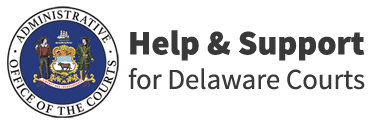Justice of the Peace Court Frequently Asked Questions
Answer: The Justice of the Peace Court handles both civil and criminal cases. Civil cases handled in the Justice of the Peace Court are those involving money debts, property damages, or return of personal property. The amount of damages which may be sought in the Justice of the Peace Court is limited to $25,000. The Justice of the Peace Court is the only court in which actions involving possession of a rental unit (including residential, commercial units and mobile homes) may be brought.
The Justice of the Peace Court hears the following types of criminal cases: designated misdemeanor cases, local ordinance violations, traffic cases, and truancy cases among others. In addition, the Justice of the Peace Court sets initial bail for cases involving more serious offenses which will later be heard in the Court of Common Pleas or the Superior Court.
Answer:If you are filing a civil claim in the Justice of the Peace Court, a list of the Justice of the Peace Civil Courts, with their addresses, hours of operation, and directions is available. If the claim you are filing involves a summary possession case, the complaint must be filed in the court nearest the rental property. For other civil cases, you will generally not be able to recover your court costs in any suit against a Delaware resident unless you bring your action in a court in the county in which the defendant resides.
Answer: No. Marriage licenses are issued by the Clerk of the Peace in the county in which you wish to be married. You may reach the Clerk of the Peace at the following phone numbers:
Kent County (302) 744-2346
Sussex County (302) 855-7834
Answer: You are not required to have a lawyer represent you in the Justice of the Peace Court. However, you may find a lawyer to be helpful. If you are unable to pay for a lawyer, you may be able to obtain assistance at no cost. More information on finding a lawyer .
A corporation or other artificial entity or a public body, may appear in a Justice of the Peace Court without a lawyer in civil cases only if a Certificate of Representation (Civil Form 50) is filed and the other provisions of Supreme Court Rule 57 are complied with.
Answer: Points are assigned by the Division of Motor Vehicles (DMV). You may contact DMV for information as to the points which will be assigned for various motor vehicle violations.
Answer: The Court clerks are not permitted to give legal advice so they cannot help you to fill out Court papers. However, the information on this web site is designed to help you with the process. In addition, the Court has brochures and videos to help you in filing or defending a case.
Brochures:
How to File and Defend a Summary Possession Action in the Justice of the Peace Court
Questions and Answers about the Rules of Evidence in the Justice of the Peace Court
Videos:
Civil Proceedings in the Justice of the Peace Court - ($2.00 - may be obtained at any Justice of the Peace Civil Court)
Summary Possession Proceedings in the Justice of the Peace Court - (free - may be obtained at any Justice of the Peace Civil Court)
Criminal Proceedings in the Justice of the Peace Court - ($2.00- may be obtained at any Justice of the Peace Criminal Court)
Answer:You may pay a fine owed to the Voluntary Assessment Center in any Justice of the Peace Criminal Court (instead of mailing it directly to the Voluntary Assessment Center). However, you should be sure to bring a copy of your traffic ticket when you pay the fine. You may also pay a fine owed to any Justice of the Peace Criminal Court in any other Justice of the Peace Criminal Court. However, fines owed to other courts, such as the Court of Common Pleas, Superior Court, or Family Court may not be paid in the Justice of the Peace Court.
Answer: Yes. Credit cards are accepted for fines, costs, and restitution payments (when paid directly to the Court).
Answer: No. You will usually need to find a notary public. You can find a list of notaries in the yellow pages of the phone book.
Answer:
If you are not sure that a witness will show up at court in a civil case, you may subpoena the witness
(have the court order the person to appear at court to testify) by filing a request for a subpoena with the Court.
There is a $10.00 charge for each subpoena.
Requests for subpoenas for the attendance of witnesses, production, inspection or copying of materials,
or inspection of the premises should be filed at the earliest possible opportunity following service
of the complaint on the Parties. Filing a request for a subpoena must be done no later than 5 business days
before trial otherwise the Court cannot guarantee service. Subpoenas requested which appear to be unreasonable
or place an undue short notice or burden on the recipient may be denied by the Court (J. P. Civil Rule 45).
Answer: If it is an emergency complaint, contact 911. Otherwise, contact the police agency which serves the area where the crime occurred.

